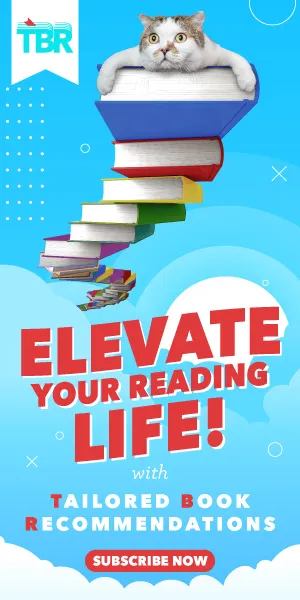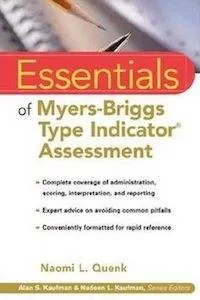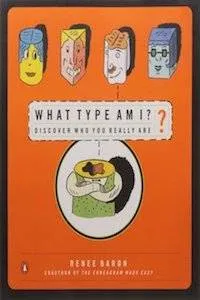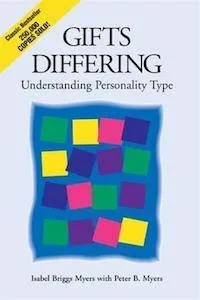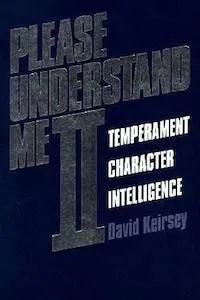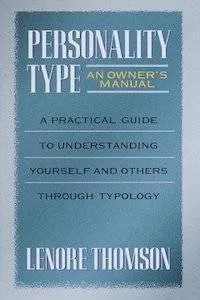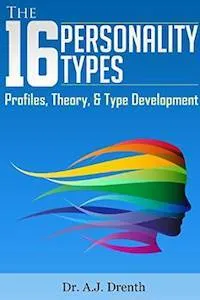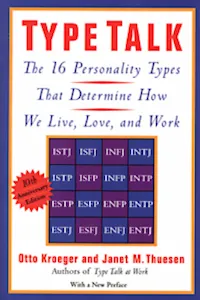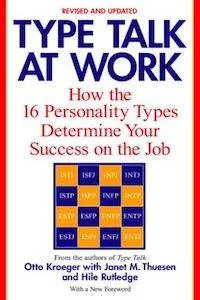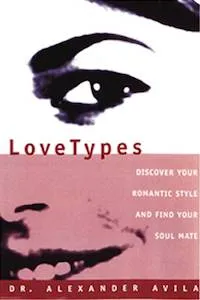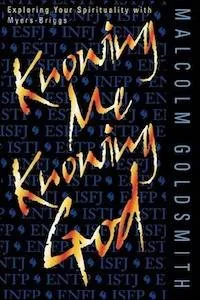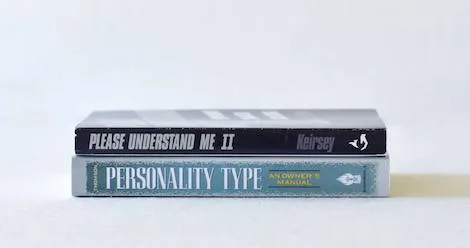
10 Enlightening Books on Myers-Briggs Personality Types
This content contains affiliate links. When you buy through these links, we may earn an affiliate commission.
The Myers-Briggs Type Indicator—or MBTI for short—is probably the most well-known and widely accepted personality framework in the world today. It’s used by over 80% of Fortune 500 companies and by marriage counselors, pastors, life coaches, and numerous individuals the world over. These books on personality types according to Myers-Briggs help you understand more about this system.

This is the foundational book on the MBTI. It’s actually written for professionals and those in training to become certified administrators of the MBTI assessment. So if you’re the sort of person who heads straight for the textbook aisle at Barnes & Noble whenever you want to learn something new, this book is for you. It provides an overview of the Myers-Briggs framework, information on how to administer, score, and interpret the MBTI test, and outlines its strengths and weaknesses.
I’m a big fan of Renee Baron’s books on personality theory because she makes the complexities of the MBTI seem simple. This book is also peppered with funny little cartoons that illustrate the characteristics and eccentricities of each type. The body of the book only covers the basics but there is an appendix that dives into the more advanced Jungian aspects of the MBTI. This is a great introductory book for the less academically-inclined.
This is another classic Myers-Briggs book, written by Isabel Briggs Myers herself, who refined Jung’s original theory and launched it into the popular imagination with her mother, Katherine Cook Briggs, in the mid-20th century. It outlines the personality framework and its relationship with Jung’s theory. It also covers the basics of type development, especially in children and adolescents.
David Keirsey further further developed the Myers-Briggs theory by sorting the 16 types into four groups of four: the Artisans (ESTP, ISTP, ESFP, ISFP), the Guardians (ESTJ, ISTJ, ESFJ, ISFJ), the Idealists (ENFJ, INFJ, ENFP, INFP), and the Rationals (ENTJ, INTJ, ENTP, INTP). He contended that the types within each group shared certain essential characteristics and this theory gained widespread popularity in the late 20th century and still holds sway today. This book outlines his view of the MBTI in great detail.
At over 400 pages, this book is a deep dive into the Jungian side of Myers-Briggs theory. In it, Thomson explores the 16 types in pairs based on their shared dominant preference for each of the eight cognitive functions. It’s a dense volume but the text is broken up by cartoons that humorously illustrate certain points about each type. It provides a unique perspective on the MBTI that distinguishes it from the other books on this list.
A.J. Drenth is the founder of PersonalityJunkie.com, an excellent resource on the MBTI, especially for introverted intuitives. In this bestselling book, he provides profiles of each type and gives an easy-to-understand overview of the Jungian cognitive functions.
This is another great introductory book. It outlines both the Jungian cognitive functions and each of the four-letter dichotomies. It then focuses specifically on the types at work and in relationships, giving advice on how to use the MBTI to avoid “organizational blindspots,” resolve conflicts, play the dating game, raise children, and more.
If your primary motivation to learn about the MBTI is so that you can up your business game and kill it at work, this is the book you’re looking for. It explores how your type influences the way you problem solve, resolve conflict, set goals, manage your time and stress, make sales, and more. Knowing these things can help you more effectively use your strengths and compensate for your weaknesses to succeed at work.
If your primary motivation to learn about MBTI is to improve your romantic relationships, this is the book for you. I’ve always been very skeptical of attempts to predict compatibility and domestic bliss using type theory but I like this book because it doesn’t adhere to the usual type compatibility theories at all. Take it with a grain of salt, but it does provide a unique perspective on relationships between the types.
This book is great if you want to use Myers-Briggs to help you explore and deepen your spirituality within the Christian tradition. It explores the spiritual tendencies of the 16 types and how personality shows up in the life of Christ.
If you’ve already read the books listed above or you want to skip ahead and explore your personality type in-depth, check out one of these books.
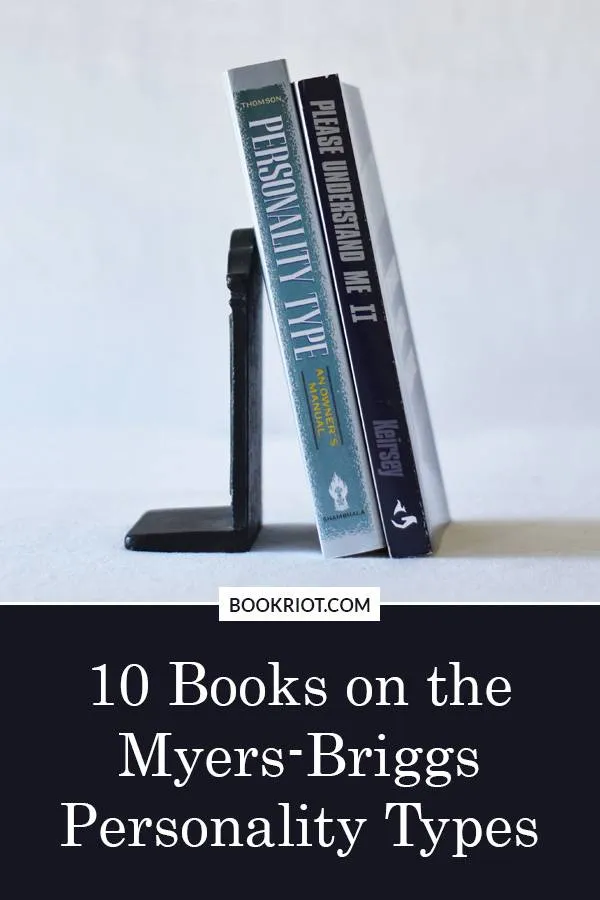
What is Myers-Briggs?
If you’re reading this, you probably already have a general idea of what the Myers-Briggs framework is, but just in case you don’t, here’s a quick overview: The Myers-Briggs framework consists of 16 different personality types. Each type consists of four letters: I (Introvert) or E (Extrovert), S (Sensor) or N (iNtuitive), T (Thinker) or F (Feeler), and J (Judger) or P (Perceiver). The letters describe an individual’s way of seeing and relating to the world. You can read more about each of these preferences here. The Myers-Briggs personality framework was born out of Carl Jung’s cognitive functions theory and these functions form a second layer of the Myers-Briggs framework. The cognitive functions are Ni (Introverted iNtuition) and Ne (Extroverted Intuition), Si (Introverted Sensing) and Se (Extroverted Sensing), Ti (Introverted Thinking) and Te (Extroverted Thinking), Fi (Introverted Feeling) and Fe (Extroverted Feeling). Each Myers Briggs type relies on some of these cognitive functions more heavily than others. You can read more about the cognitive functions here.Myers-Briggs books about personality types
Here are some excellent books to read if you want to learn more about the Myers-Briggs personality types. Essentials of Myers-Briggs Type Indicator Assessment by Naomi L. Quenk
Essentials of Myers-Briggs Type Indicator Assessment by Naomi L. Quenk
This is the foundational book on the MBTI. It’s actually written for professionals and those in training to become certified administrators of the MBTI assessment. So if you’re the sort of person who heads straight for the textbook aisle at Barnes & Noble whenever you want to learn something new, this book is for you. It provides an overview of the Myers-Briggs framework, information on how to administer, score, and interpret the MBTI test, and outlines its strengths and weaknesses.
 What Type Am I? by Renee Baron
What Type Am I? by Renee Baron
I’m a big fan of Renee Baron’s books on personality theory because she makes the complexities of the MBTI seem simple. This book is also peppered with funny little cartoons that illustrate the characteristics and eccentricities of each type. The body of the book only covers the basics but there is an appendix that dives into the more advanced Jungian aspects of the MBTI. This is a great introductory book for the less academically-inclined.
 Gifts Differing by Isabel Briggs Myers & Peter B. Myers
Gifts Differing by Isabel Briggs Myers & Peter B. Myers
This is another classic Myers-Briggs book, written by Isabel Briggs Myers herself, who refined Jung’s original theory and launched it into the popular imagination with her mother, Katherine Cook Briggs, in the mid-20th century. It outlines the personality framework and its relationship with Jung’s theory. It also covers the basics of type development, especially in children and adolescents.
 Please Understand Me II by David Keirsey
Please Understand Me II by David Keirsey
David Keirsey further further developed the Myers-Briggs theory by sorting the 16 types into four groups of four: the Artisans (ESTP, ISTP, ESFP, ISFP), the Guardians (ESTJ, ISTJ, ESFJ, ISFJ), the Idealists (ENFJ, INFJ, ENFP, INFP), and the Rationals (ENTJ, INTJ, ENTP, INTP). He contended that the types within each group shared certain essential characteristics and this theory gained widespread popularity in the late 20th century and still holds sway today. This book outlines his view of the MBTI in great detail.
 Personality Type by Lenore Thomson
Personality Type by Lenore Thomson
At over 400 pages, this book is a deep dive into the Jungian side of Myers-Briggs theory. In it, Thomson explores the 16 types in pairs based on their shared dominant preference for each of the eight cognitive functions. It’s a dense volume but the text is broken up by cartoons that humorously illustrate certain points about each type. It provides a unique perspective on the MBTI that distinguishes it from the other books on this list.
 The 16 Personality Types by Dr. A.J. Drenth
The 16 Personality Types by Dr. A.J. Drenth
A.J. Drenth is the founder of PersonalityJunkie.com, an excellent resource on the MBTI, especially for introverted intuitives. In this bestselling book, he provides profiles of each type and gives an easy-to-understand overview of the Jungian cognitive functions.
 Type Talk by Otto Kroeger & Janet M. Thuesen
Type Talk by Otto Kroeger & Janet M. Thuesen
This is another great introductory book. It outlines both the Jungian cognitive functions and each of the four-letter dichotomies. It then focuses specifically on the types at work and in relationships, giving advice on how to use the MBTI to avoid “organizational blindspots,” resolve conflicts, play the dating game, raise children, and more.
 Type Talk at Work by Otto Kroeger with Janet M. Thuesen & Hile Rutledge
Type Talk at Work by Otto Kroeger with Janet M. Thuesen & Hile Rutledge
If your primary motivation to learn about the MBTI is so that you can up your business game and kill it at work, this is the book you’re looking for. It explores how your type influences the way you problem solve, resolve conflict, set goals, manage your time and stress, make sales, and more. Knowing these things can help you more effectively use your strengths and compensate for your weaknesses to succeed at work.
 LoveTypes by Dr. Alexander Avila
LoveTypes by Dr. Alexander Avila
If your primary motivation to learn about MBTI is to improve your romantic relationships, this is the book for you. I’ve always been very skeptical of attempts to predict compatibility and domestic bliss using type theory but I like this book because it doesn’t adhere to the usual type compatibility theories at all. Take it with a grain of salt, but it does provide a unique perspective on relationships between the types.
 Knowing Me, Knowing God by Malcolm Goldsmith
Knowing Me, Knowing God by Malcolm Goldsmith
This book is great if you want to use Myers-Briggs to help you explore and deepen your spirituality within the Christian tradition. It explores the spiritual tendencies of the 16 types and how personality shows up in the life of Christ.
If you’ve already read the books listed above or you want to skip ahead and explore your personality type in-depth, check out one of these books.
ESFJ
- ESFJ: Understanding & Relating with the Provider by Clayton Geoffreys
- An Essential Guide for the ESFJ Personality Type by Samantha Treimon
ESTJ
- ESTJ: Understanding & Relating with the Guardian by Clayton Geoffreys
ISFJ
- The True ISFJ by Truity
ISTJ
- ISTJ: Understanding & Relating with the Inspector by Clayton Geoffreys
ESFP
- ESFP: Understanding & Relating with the Performer by Clayton Geoffreys
ESTP
- ESTP: Understanding & Relating with the Entrepreneur by Clayton Geoffreys
ISFP
- ISFP: Understanding & Relating with the Composer by Clayton Geoffreys
ISTP
- ISTP: Understanding & Relating with the Virtuoso by Clayton Geoffreys
- ISTP: 33 Secrets from the Life of an ISTP by Diana Jackson
ENFP
- The Comprehensive ENFP Survival Guide by Heidi Priebe
- The True ENFP by Truity
ENFJ
- ENFJ: Understanding & Relating with the Teacher by Clayton Geoffreys
INFP
- The Comprehensive INFP Survival Guide by Heidi Priebe
- The INFP Book by Catherine Chea
- INFP: A Flower in the Shade by Sandra Nichols & Jennifer Elgert
INFJ
- INFJ 101 by Lindsay Rossum
- The INFJ Handbook by Marissa Baker
- The INFJ Heart by Jennifer Soldner
- The INFJ Writer by Lauren Sapala
ENTP
- The True ENTP by Truity
- ENTP: 33 Secrets from the Life of an ENTP by Diana Jackson
- ENTP Personality by ME Insights
ENTJ
- The True ENTJ by Truity
- ENTJ by Dan Johnston
INTP
- The INTP by Dr. A.J. Drenth
- The INTP Quest by Dr. A.J. Drenth
- The Secret Lives of INTPs by Anna Moss
INTJ
- The Secret Lives of INTJs by Anna Moss
- The INTJ’s Career Handbook by Truity
- 16 Genre Recs Based on Your Myers-Briggs Personality Type
- The Myers-Briggs Types of 101 Famous Authors
- The Myers-Briggs Types of 202 Fictional Characters
- 10 Life-Changing Books for Introverts
- 10 Enlightening Books on Personality Types
- 19 Enlightening Books on the Enneagram of Personality
- The Enneagram Types of 100 Famous Authors
- The Enneagram Types of 99 Fictional Characters


